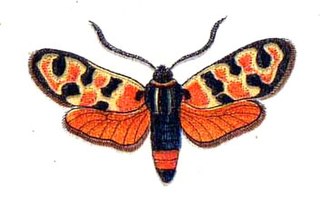
Flavius Julius Crispus was the eldest son of the Roman emperor Constantine I, as well as his junior colleague (caesar) from March 317 until his execution by his father in 326. The grandson of the augustus Constantius I, Crispus was the elder half-brother of the future augustus Constantine II and became co-caesar with him and with his cousin Licinius II at Serdica, part of the settlement ending the Cibalensean War between Constantine and his father's rival Licinius I. Crispus ruled from Augusta Treverorum (Trier) in Roman Gaul between 318 and 323 and defeated the navy of Licinius I at the Battle of the Hellespont in 324, which with the land Battle of Chrysopolis won by Constantine forced the resignation of Licinius and his son, leaving Constantine the sole augustus and the Constantinian dynasty in control of the entire empire. It is unclear what was legal status of the relationship Crispus's mother Minervina had with Constantine; Crispus may have been an illegitimate son.

Flavia Maxima Fausta Augusta was a Roman empress. She was the daughter of Maximian and second wife of Constantine the Great, who had her executed and excluded from all official accounts for unknown reasons. Historians Zosimus and Zonaras reported that she was executed for adultery with her stepson, Crispus.
Fausta Simona Morganti was a Sammarinese politician.

Colotis fausta, the large salmon Arab, is a small butterfly of the family Pieridae, that is, the yellows and whites, which is found in Israel, Syria, Turkey, Iran, Afghanistan, Turkmenistan, India, Arabia, Chad, Somalia and United Arab Emirates.

Fausta is a melodramma, or opera seria, in two acts by Gaetano Donizetti. The Italian libretto was partly written by Domenico Gilardoni, who died while doing so: the remainder was written by Donizetti. The literary source of the opera's libretto is Crispo, a tragedy improvised by Tommaso Sgricci on 3 November 1827.

Roma is an opera in five acts by Jules Massenet to a French libretto by Henri Cain based on the play Rome vaincue by Dominique-Alexandre Parodi. It was first performed at the Opéra de Monte Carlo on 17 February 1912.

Zygaena fausta is a member of the family Zygaenidae, the day-flying burnet moths. Its bright aposematic colours of red, white and black on the wings indicate to possible predators such as birds that it is foul tasting or poisonous. In flight, the bright red abdomen is revealed, contrasting with the white legs and black head and antennae; the thorax is black and white with an eye spot on each side. There appears to be a considerable variation in pattern among specimens from different parts of Europe.
Fausta was the Byzantine empress as the wife of Constans II, when they married in 642.

Fausta of Cyzicus, also known as Saint Fausta, was a 4th-century girl from Cyzicus. At the age of 13, she was arrested, tortured, and executed for being a Christian.
Fausta Quintavalla is a former javelin thrower from Italy. She won three medals, at senior level, at the International athletics competitions.

The Milk of Sorrow is a 2009 drama film by Peruvian director Claudia Llosa and co-produced by Peru and Spain. The film stars Magaly Solier and addresses the fears of abused women during Peru's recent history. It won the 2009 Golden Bear award and FIPRESCI prize at the Berlin International Film Festival, as well as the award for best film in the 24 Festival Internacional de Cine de Guadalajara in Mexico. It was nominated for the 82nd Academy Awards for Best Foreign Language Film, becoming the first Peruvian film to be nominated for the award.
Fausta Terni Cialente was an Italian novelist, journalist and political activist. She is a recipient of the Strega Prize.
Fausta Garavini is an Italian writer and translator.

L'uomo che guarda, misleadingly translated into English as The Voyeur, is a 1994 Italian erotic drama film written and directed by Tinto Brass in a free adaptation of Alberto Moravia's eponymous 1985 novel. It tells the story of an academic who in his interactions with other people is fated to watch and not to act, an approach that does not lead him to success with women.
The Story of Fausta is a 1988 Brazilian drama film directed by Bruno Barreto. The film was selected as the Brazilian entry for the Best Foreign Language Film at the 61st Academy Awards, but was not accepted as a nominee.
Faustabryna celebiana is a species of beetle in the family Cerambycidae. It was described by Vives in 2014.
Fausta Cornelia was a daughter of the Roman Dictator Sulla.

Faustas Latėnas was a Lithuanian composer, theatre manager, politician and diplomat. He composed mostly incidental music, and also scores for films and television. He was vice-minister of the Lithuanian Ministry of Culture, advisor to the prime minister in cultural affairs, and cultural attaché in Moscow.
Events in the year 2021 in San Marino.

Fausta Labia was an Italian operatic soprano who was active mainly from 1892 to 1908. She made her debut in Naples in April 1892 as Valentine in Meyerbeer's Les Huguenots. After engagements at the Royal Swedish Opera in Stockholm (1893–95) and Lisbon (1896), she returned to Italy where she performed first in Turin, Rome and Bologna. Thereafter notable performances included the title role in Mascagni's Iris at La Fenice in Venice (1900) and Sieglinde in Wagner's Die Walküre at Milan's La Scala (1901).










